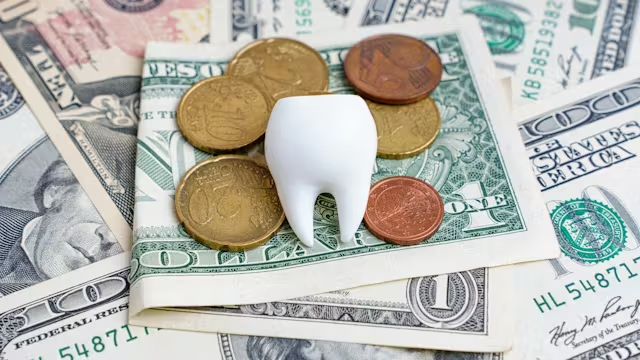Dental Offices and Good Financial Habits

Running a dental office is equal parts clinical care and business management. While patient outcomes and satisfaction is always going to be the most important, the success of a practice depends just as much on its financial habits. Dentists who know how to manage their money sets themselves up for long-term growth and freedom. Good financial practices are not abstract theory, like some may think. These come down to daily actions and smart choices that protect the health of their dental practice.
Understanding Cash Flow
A dental practice that does not understand its cash flow is flying blind out there in the world. Payments can be unpredictable, with insurance reimbursements, delayed billing, and patient financing all adding complexity. A habit of tracking inflow and outflow consistently keeps any surprises to a minimum. Strong cash flow management allows a practice to pay staff on time and avoid debt that can quietly build up behind the scenes. Good financial hygiene means knowing exactly what is coming in and going out at all times.
Accounting Is a Must
Dental practice accounting requires more than a general understanding of numbers. This is all about structuring financial data in a way that supports decision-making. Practices need a chart of accounts that matches how dental businesses operate, tracking categories like hygiene production, lab fees, supplies, and continuing education. A good accountant with dental experience can spot red flags early and even help optimize staff compensation models. Accounting should be a living system. Waiting until tax season to review the books is too late. Dental practice accounting creates clarity that turns into better financial choices.
Building Habits That Stick
Financial discipline is less about single events and more about steady habits. Practices that set aside time each week to review finances are more likely to spot issues early. Leaders who share key financial numbers with team members create a culture of accountability and trust. Staff members care more when they see how their efforts support the financial health of the business. These daily habits will compound.
Smart Spending – Not Just Budgeting
A budget is helpful, but how you spend within that budget matters more. Every purchase has a ripple effect. Choosing a cheaper supplier might save money this month, but cost more later in delays and frustrations. Make spending choices based on long-term goals, not short-term impulses. A smart financial habit is pausing before any major purchase and asking how it supports the future of the practice.
Read also: Apple Intelligence: Your Personalized Tech Assistant
Financial Habits That Strengthen Dental Practices
Some practical habits that support financial strength in dental offices includes:
- Set a regular finance review day every week, even if it’s just 30 minutes.
- Track overhead percentage monthly, and set a target range.
- Create a cash reserve fund with at least 3 months of operating expenses.
- Use cloud-based accounting software with dental-specific reporting tools.
- Invest in staff training to boost productivity and morale, which feeds profitability.
- Audit insurance payments regularly to make sure you’re collecting properly.
Good Finance Is Good Dentistry
Solid financial habits will not distract from dentistry, they will do everything to support it. A practice that is financially healthy provides a better environment for patients, a more stable career for team members, and a more rewarding professional life for the dentist. Financial stewardship is part of clinical excellence. By taking care of the business side, dental professionals give themselves the freedom to focus fully on what they do best. Caring for people and their teeth is the most important part of the job. Help yourself to do it well by setting up good financial habits now. Good dental offices will have the good financial habits to back them up.




